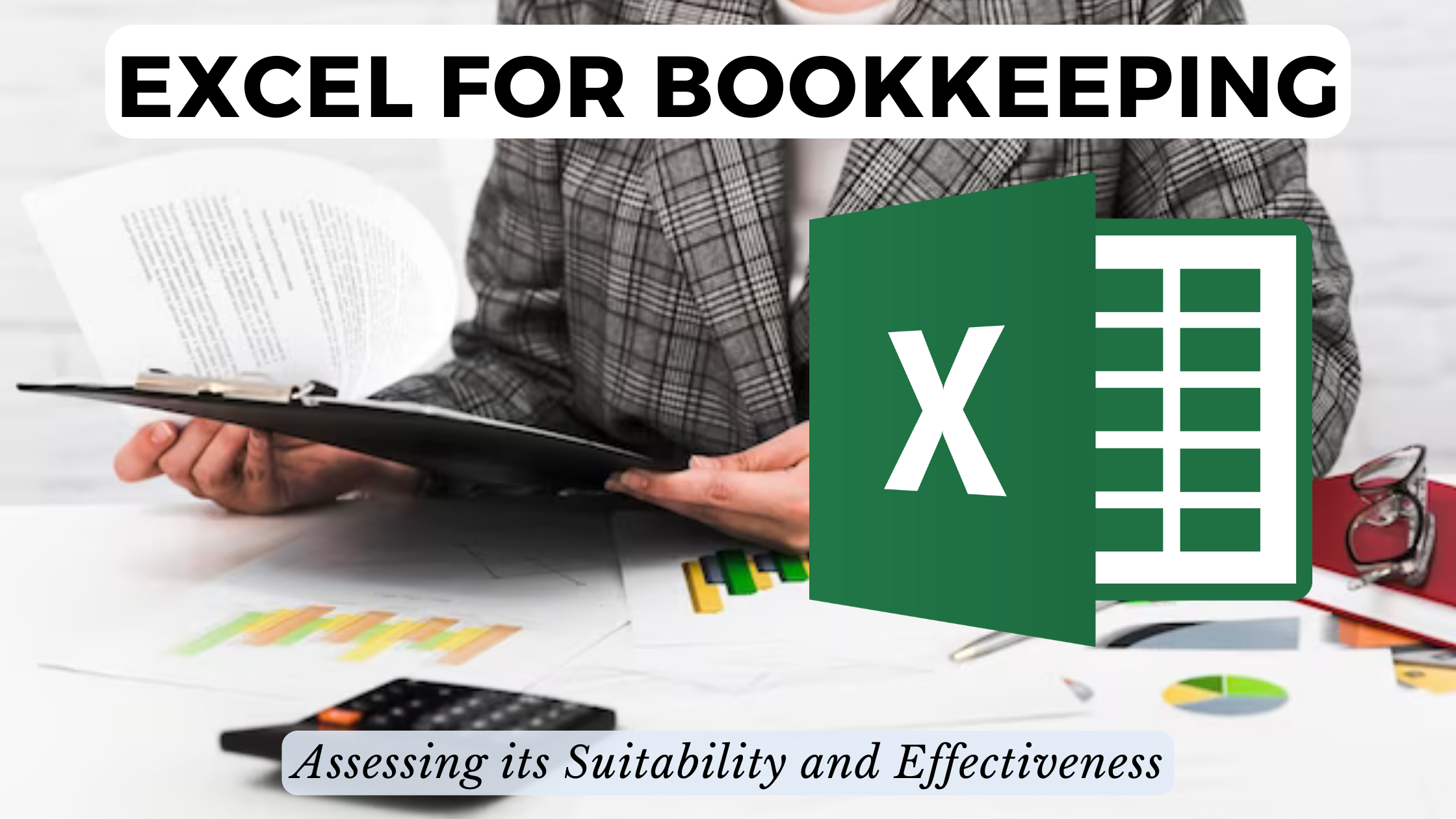Excel for Bookkeeping: Assessing its Suitability and Effectiveness
- Data as a Service (DaaS) Software Marketing & Analytics


Excel for Bookkeeping: Assessing its Suitability and Effectiveness
In the ever-evolving landscape of bookkeeping, Excel has long been a trusted companion. This article aims to dissect the suitability and effectiveness of using Excel for bookkeeping, shedding light on its pros and cons. Let’s delve into the nuances and explore alternative SaaS solutions that might redefine your bookkeeping experience.
The Excel Advantage
Flexibility and Customization: Excel offers unparalleled flexibility, allowing users to customize their bookkeeping templates based on specific business needs. This adaptability has been a cornerstone for many small businesses.
Familiarity and Accessibility: Widely used and understood, Excel requires no specialized training. Its accessibility makes it a go-to choice, especially for solo entrepreneurs or small business owners handling their bookkeeping.
Cost-Effective: Excel comes bundled with Microsoft Office, making it a cost-effective solution for businesses on a tight budget. It eliminates the need for additional software purchases.
Limitations of Excel in Bookkeeping
Manual Data Entry and Prone to Errors: Excel heavily relies on manual data entry, leaving room for human errors. As businesses grow, the probability of mistakes increases, potentially leading to financial discrepancies.
Limited Collaboration: Collaboration in Excel is a challenge, especially in a remote work era. Multiple users working on a single spreadsheet can result in version control issues and hinder real-time collaboration.
Scalability Concerns: Excel might suffice for basic bookkeeping, but as businesses expand, its limitations become apparent. Managing larger datasets and more complex financial scenarios can be cumbersome.
SaaS Solutions Transforming Bookkeeping
- QuickBooks: A pioneer in cloud accounting, QuickBooks offers a seamless bookkeeping experience. Automate tasks, generate financial reports, and enjoy real-time collaboration for enhanced efficiency.
- Xero: Tailored for small to medium-sized businesses, Xero simplifies bookkeeping with features like bank reconciliation, invoicing, and expense tracking. Cloud-based accessibility ensures you’re always connected to your financial data.
- FreshBooks: Ideal for freelancers and small businesses, FreshBooks streamlines bookkeeping with user-friendly invoicing, expense tracking, and time management features. Cloud-based storage ensures data accessibility from anywhere.
- Wave: A free, user-friendly solution, Wave simplifies bookkeeping for small businesses. Features include invoicing, expense tracking, and comprehensive financial reporting.
- Zoho Books: Zoho Books integrates seamlessly with other Zoho products, offering an end-to-end accounting solution. From invoicing to expense tracking, it’s designed to grow with your business.
Conclusion: Striking the Right Balance
In assessing the suitability and effectiveness of Excel for bookkeeping, businesses must weigh the advantages against the limitations. While Excel remains a stalwart for many, considering modern SaaS solutions can elevate your bookkeeping experience, providing automation, collaboration, and scalability.
Unlock exclusive deals on leading bookkeeping SaaS tools at Subscribed.FYI. Sign up today to access savings on a range of products, transforming the way you manage your finances.
Relevant Links:








